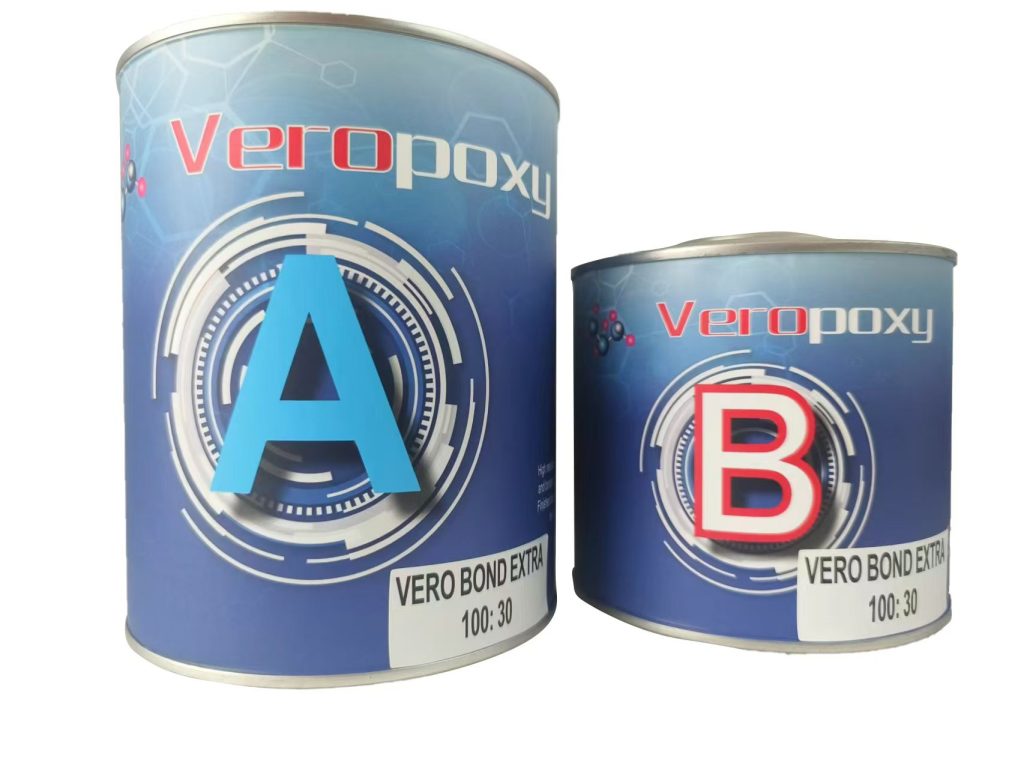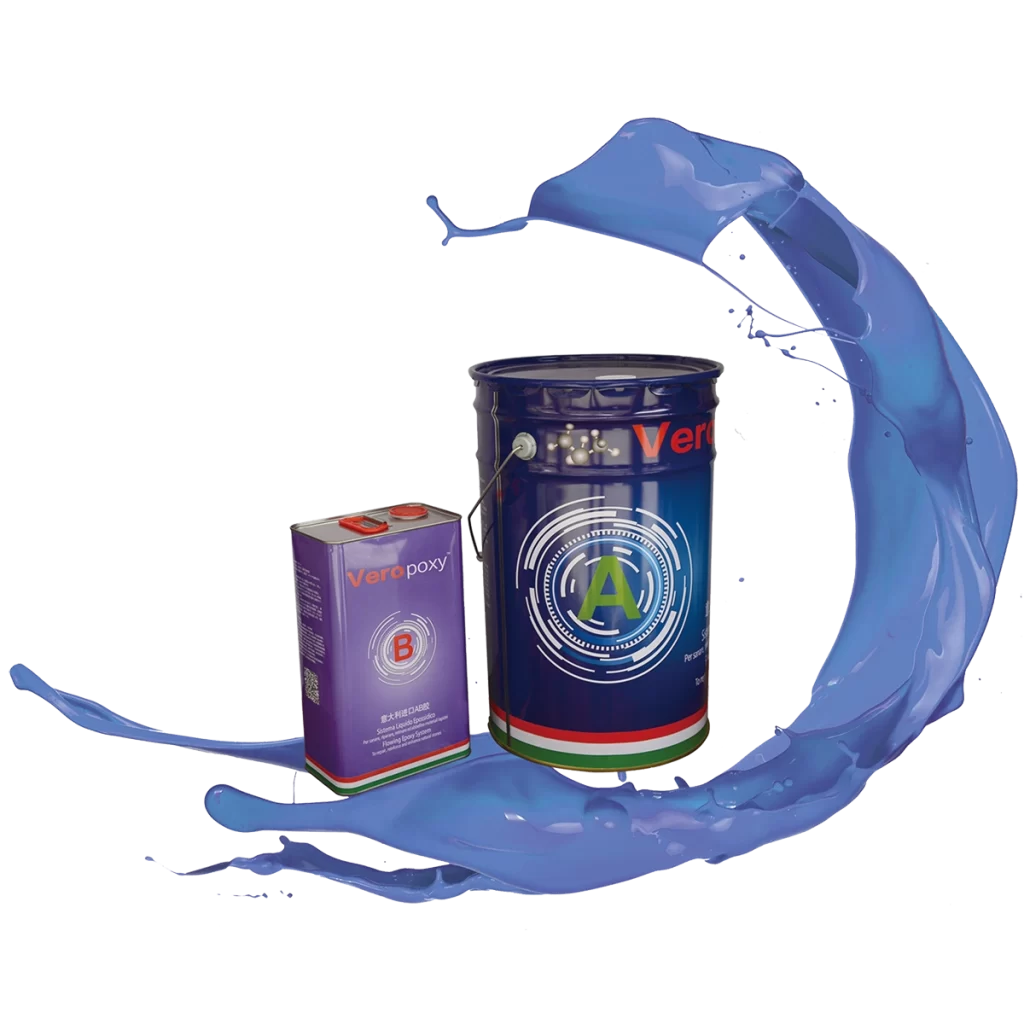Applied extensively in manufacturing, building, and decorating, epoxy resin is a high-performance adhesive substance. Marble has very great adhesion when mixed with other materials, therefore offering a strong and long-lasting bond. Marble sometimes has to be spliced, polished, and mended in architectural embellishment work.

epoxy resins
Physical and chemical characteristics of epoxy resin
Its great stickiness is determined by its chemical makeup. Many polar groups and active epoxy groups abound in its molecular structure, which during curing generates significant physical adsorption and chemical interaction with the marble surface. It transforms from liquid to solid during curing. It has rather high tensile strength and hardness after curing, which will help to sufficiently counteract the impact of outside pressures. It is so often used to link hard materials like metal and stone.
Concept of the mix of epoxy resin and marble
Marble has a high structural density yet a porous surface that provides conditions for epoxy resin to penetrate and connect. It may enter the stone structure in addition to filling the small holes on the surface of marble. Strong adhesion may be created by polar groups interacting with the surface chemical characteristics of marble. Simultaneously, during the curing process, the structure changes and gets tougher, so securely fastened to the marble surface. Long-term adherence of epoxy resin to marble is guaranteed by this bonding procedure.
Benefits for marble bonding
strong adherence
Its great stickiness makes it very preferred in marble projects. It may securely link marble and make it tough to separate during usage whether it is used to fix fractures or bind broken sections.
outstanding anti-aging ability
Marble bonding’s anti-aging properties provide even another benefit. Stable under environmental circumstances like moisture, UV light, and temperature variations, high-quality epoxy resin is weather-resistant. Under long-term exposure, this makes the marble construction robust and lasting.
Resistance of acids and alkali
Marble is used in places like bathrooms and kitchens where both acidic and alkaline elements might coexist. Epoxy resin’s acid and alkali resistance helps to lengthen its service life and properly guard the marble surface from deterioration.
Epoxy resin application techniques
Strict adherence to the technique of usage will help to guarantee the optimum adhesion of epoxy resin to marble. The whole process follows this:
Surface get ready
The marble surface has to be cleaned first before applying epoxy resin. To guarantee adherence, clean surfaces dust, oil and other contaminants using anhydrous ethanol or a specific stone cleaner.
blending
Usually consists of two sections: a curing agent and a primary agent. Usually in line with a ratio of 1:1 or another predetermined ratio, the mixing procedure must be rigorously followed in ratio. Use soon after combining to stop the component from curing too soon.
Using and aggregating
Lay epoxy glue consistently over the marble’s bonding surface. Verify even distribution and correct right away. Usually, it has to be allowed to stand for at least 24 hours after the marble and epoxy resin are mixed to get perfect curing.
Physical characteristics upon drying
On the marble surface, the cured epoxy resin reveals very great strength and durability. Tests indicate that it may attain 100% strength after complete curing and a hardness of more than 90% following 24 hours at room temperature. Strong load-bearing capability, non-easily scratched, corroded or cracked epoxy resin will be the result.
Elements influencing marble’s adherence
temperature
Temperature is somewhat tightly correlated with the cure speed and adhesion strength. Epoxy glue cures quicker at higher temperatures; nevertheless, too high a temperature may reduce adhesive strength.
humidity
The curing process responds also to humidity. The curing pace may slow down in high humidity conditions, therefore influencing the ultimate adhesion impact. Thus, in high humidity surroundings employing epoxy resin calls for dehumidification methods.
Surface glossiness
Marble’s surface roughness will directly influence epoxy resin’s adherence impact. Epoxy resin bonds better over a somewhat rough surface as the rough surface may increase the contact area and improve the adhesion strength.
Marble use: durability
Its robust and long-lasting qualities enable it to have impacts on marble bonding. Marble’s strong temperature and corrosion resistant qualities help it to stay in excellent shape in many demanding environments. Simultaneously, epoxy resin can effectively withstand external impacts and scratches as it is quite hard after curing.
Application in marble restoration
When chips or cracks show on the marble surface, it is the perfect restoration material. Usually, injecting epoxy resin helps to preserve the integrity and appearance of the surface by filling cracks. Epoxy resin may also be changed to a colour like marble by means of colour matching technology, therefore enhancing the natural appearance of the restored stone.
Safety and preservation of the environment
Though the bonding performance is improved, the content of volatile organic compounds is lowered as modern formulations are progressively optimised. Marble restoration and splicing so rely especially on environmental preservation. Good chemical resistance and little emission of dangerous gases after curing make high-quality epoxy resin appropriate for many high-standard architectural and ornamental settings.
Marble applications: future development possibilities
The function of epoxy resin in marble applications is growing in relevance as building technology develops. Higher standards for the aesthetics, durability and environmental protection of materials, as well as the adhesive effect and protective performance of epoxy resin, help to significantly increase the whole value of marble in projects involving high-end décor. Furthermore, quicker and more permanent curing effects may be obtained by means of technological optimisation, therefore simplifying the use of epoxy resin in marble bonding in the future.

Strong adherence to marble and great durability and stability of epoxy resin provide marble great protection and repair choices. Its remarkable physical and chemical qualities help it to be very useful for marble restoration, splicing and preservation. Not only can the service life of marble be prolonged but also its beauty and protective capacity may be enhanced by appropriate use and care.
Post time: 11 月-08-2024

